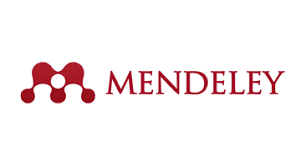Author's code of ethics aims to give birth to an original work, not a plagiarized work.
In order to maintain the truth and the benefits and the meaning of information disseminated so as not to mislead the writer is expected to:
- Write carefully, thoroughly, and precisely.
- Responsible academically for his writing.
- Benefit the user community.
- Uphold the rights, opinions or findings of others.
- Be fully aware of non-infringement.
The author is said to violate the code of ethics when doing:
- Falsification
- Fabrication
- Plagiarism
Data fabrication is to 'fabricate' data or create data that actually does not exist or more generally create fictitious data.
Falsification of data is can mean to change the data in accordance with the wishes, especially to fit the conclusion that 'wanted' taken from a study.
Plagiarism is taking words or sentences or texts of others without giving sufficient acknowledgment (in the citation).
If the authors do plagiarism then he/she is considered to commit an intentional 'persecution' because there is a forced way of taking words/ideas without the permission of the owner.
The classification of plagiarism can be made depending on various aspects of view in terms of substance stolen,
1. From the point of intent,
2. In terms of volume/proportion
- Light plagiarism: <20%
- Medium plagiarism: 20-70%
- Severe plagiarism:> 70%
- From the pattern of theft, plagiarism can be done verbatim or can be sourced from various sources and with own words (mosaic).
- Based on the individual source of ideas, there is also known as Auto-plagiarism / self-plagiarism: If the work itself has been published before, then when we take the idea, it should include a reference or citation. Otherwise, this can be regarded as auto-plagiarism or self-plagiarism. This is feared because if intended or later used to add academic credit, it can be regarded as a serious violation of academic ethics.
Someone who does one of three violations of academic ethics (falsification, fabrication, and plagiarism) can be said to have moral defects, especially when viewed through the eyes of religion. Religious value denounces violations as part of dishonesty, theft or taking possession of others without rights.


